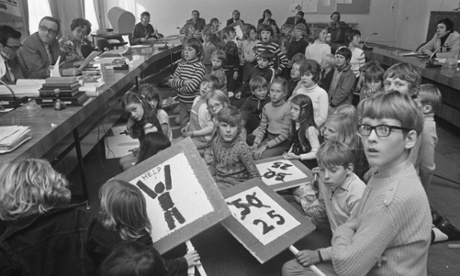Sito Veracruz lives in the centre of Amsterdam. Some years ago, he enthusiastically rented out a room on Airbnb. “At first I thought it was a great idea,” he recalls. “But I now realise there are side-effects that we didn’t foresee. Airbnb can be a threat for cities.”
Veracruz, an urban planner, witnesses daily how the large number of apartments rented out on Airbnb and other short-stay rental websites are bringing more and more tourists to the central areas of Amsterdam. He says this has a negative effect on life in these neighbourhoods – and he’s not only talking about the nuisance that noisy, partying tourists can create for the local residents.
“I think it’s obvious that Airbnb contributes to gentrification,” Veracruz says. “It drives up real estate prices that are already searing in Amsterdam. Neighbourhood business that create ties between residents are replaced by businesses that only focus on tourists. Bike rental companies replace local grocery shops. And apartments that are continuously rented out to tourists are lost to people who want to actually live here.”
Such is Veracruz’s concern that he is trying to create an alternative service: Fairbnb. What he proposes is a short-stay rental platform that is beneficial to the city – with hosts who are registered with the council, and neighbours who are involved in the management of the platform.
“I am talking about a platform that really complies with the principles of a fair, non-extractive and collaborative economy,” Veracruz says. “We would like to encourage visitors to stay in areas where they are not a disturbance, but could add something to the neighbourhood.”
The issues triggered by the global rise of Airbnb are a subject of ongoing debate in Amsterdam. It has become extremely popular, and lucrative, to rent out a flat or room here on one of the short-stay rental platforms, of which Airbnb is by far the biggest. An estimated 22,000 rooms and flats in the Dutch capital are now offered for rent this way at least once a year. In the most popular neighbourhoods, as many as one in six homeowners rent out a room or flat on Airbnb.
Earlier this year, the Dutch bank ING stated in a report that Airbnb drives up real estate prices, because people are prepared to pay more for a flat when they can make extra money by renting it out. The bank found the effect to be “considerable”, although not everybody agrees on this conclusion. “The studies that have been done are not very well founded,” says Janine Harbers, a spokeswoman for Amsterdam’s city council. “But some effect seems likely.”
According to Peter Boelhouwer, professor of housing systems at the University of Technology in Delft: “When so many flats are rented out to visitors, it has an effect on the availability of real estate. There is a great shortage in the housing market in Amsterdam and this doesn’t do it any good – but one shouldn’t exaggerate it.”
Boelhouwer says the “Airbnb effect” is by no means a primary factor in the city’s gentrification, which “has been going on for a long time in the central areas of Amsterdam”.
“The council welcomed it at first because it meant an upgrading of the city,” he adds. “But now that it continues, you see the rise of very unilateral neighbourhoods. Families with children are leaving this city because they can’t afford to live in the good areas.”
In fact, Amsterdam has taken some steps to address the impact of Airbnb on its housing markets. Back in 2014, it was the first city to sign an agreement with the multinational, which saw Airbnb agree to levy and hand over tourist taxes to the city, remove addresses where the council has intervened because of complaints, and inform users of its rules (typically, that apartments should be rented out for no longer than 60 days per year, to not more than four guests at a time).
What the city has been unable to do, however, is make Airbnb disclose the identity of those hosts who do not stick to its rules. The company still refuses to do so on privacy grounds.
This means that enforcement of these rules is difficult. According to the independent website Inside Airbnb, around half of the Amsterdam flats on Airbnb are rented out more than 60 days a year. A quarter of the hosts were found to have multiple listings – with some identified as “more likely to be running a commercial business and to violate the rules”.
Harbers from the city council, however, says the problem is less serious than Inside Airbnb suggests. “According to our statistics, a majority 81% of the hosts respect the rules – and we are working on [those who do not]. We have established a hotline for complaints as well as researching online, and we have raised the fine for people who break the rules to €20,000.”
Bernard D’heygere, a spokesman for Airbnb, describes its relationship with Amsterdam as “our longest and strongest partnership with any city in the world”.
“Airbnb puts money in the pockets of regular Amsterdammers,” he adds. “The typical host earns €3,800 a year by sharing their space for a total of 28 nights [each year]. And we will continue to work with policymakers to make the city’s communities stronger.”
Fairbnb creator Veracruz recently held his first “meet-up”, with about 20 like-minded people who were keen to collaborate on his new rental platform. “With Fairbnb,” he says, “we hope we can reduce some of the pressure on Amsterdam’s popular neighbourhoods.”
Meanwhile, the city council has opened new negotiations with Airbnb. Whether this will address the problem of identifying those hosts and guests who don’t respect the rules, remains to be seen.
Are you experiencing or resisting gentrification in your city? Share your stories in the comments below, through our dedicated callout, or on Twitter using #GlobalGentrification











